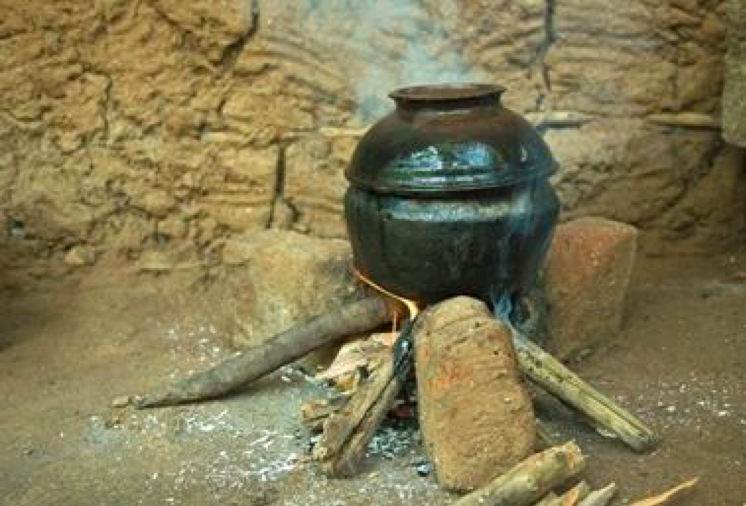Worldwide nearly three billion people rely on traditional cookstoves or open fires for cooking every day (Global Alliance of Clean Cookstoves, 2015). In Ghana 22 million people use solid fuels for cooking and a great majority is still using traditional three stone fires, although this method of cooking has severe negative consequences with even more than 13000 deaths in Ghana, due to the household air pollution of the traditional cookstoves.
In the Ejisu-Juaben District in Ghana traditional wood fuel cookstoves are used by Ga and Fante Kenkey makers. Ga and Fante Kenkey is a staple dish, originating from the Ga and Fante inhabited regions in West Africa. It takes too much time for households to prepare Kenkey for themselves and so a new business emerged: (mainly) women make large quantities of Kenkey and sell smaller portions to households in the nearby areas. Therefore the cookstoves are used all day long by the Kenkey makers, which is affecting their health, the local livelihood and the environment. The cookstoves contribute to indoor air pollution. The exposure to toxic cookstove smoke causes health problems and the impact is so great that is now the fifth leading cause of death in developing countries and the fourth leading cause of diseases in developing countries (WHO, 2015). Secondly, significant amount of time is spent on collecting fuel wood in the area (Ghana Country Action Plan on Clean Cooking, 2013). When the cookstove users have the opportunity to save time through increased efficiency of cookstoves, it will bring more freedom and opportunities. The local livelihood will be improved when more time could be spend on income-generating activities, childcare and education for example (Lewis & Pattanayak, 2012). Furthermore the inefficient cookstoves and using wood as fuel affect the environment, because it leads to air pollution, deforestation and climate change.
Although the Ghanaian government is stimulating the catalysing of the market for clean cooking solutions, there are currently no improved wood fuel cookstoves on the market that cater the needs of the rural population, including the Kenkey makers. To improve their conditions, the Kumasi Institute of Tropical Agriculture (KITA) launched the Clean Cookstove Project on developing clean wood fuel cookstoves specifically for the making of Ga and Fante Kenkey by Kenkey makers in the Ejisu-Juaben District in Ghana. The project was launched by KITA in 2014 and this year the follow up will be executed by six students of TU Delft and KITA during an internship near Kumasi of three months. The project is divided in three phases, which may overlap during the internship: a research phase, a prototyping phase and a sales phase. The project plan gives an clear overview of the mission of the project and how it will be accomplished during the internship and afterwards, including a description of the phases. Furthermore the project plan will contribute to more knowledge transfer, better communication and a clear structure of the project.
